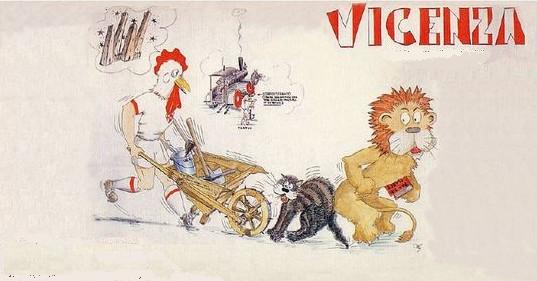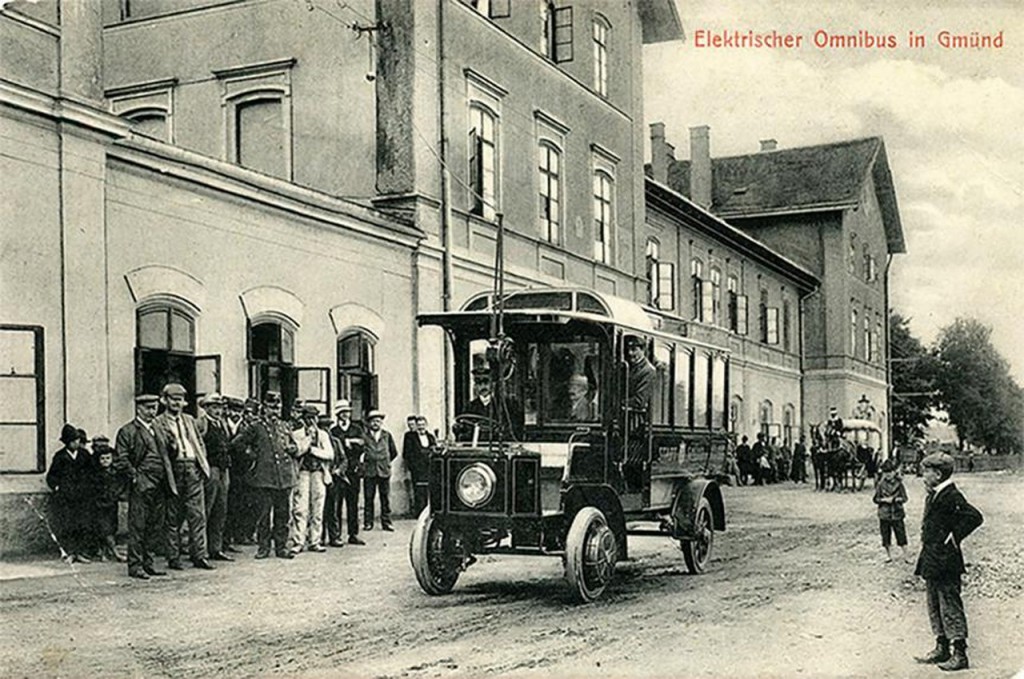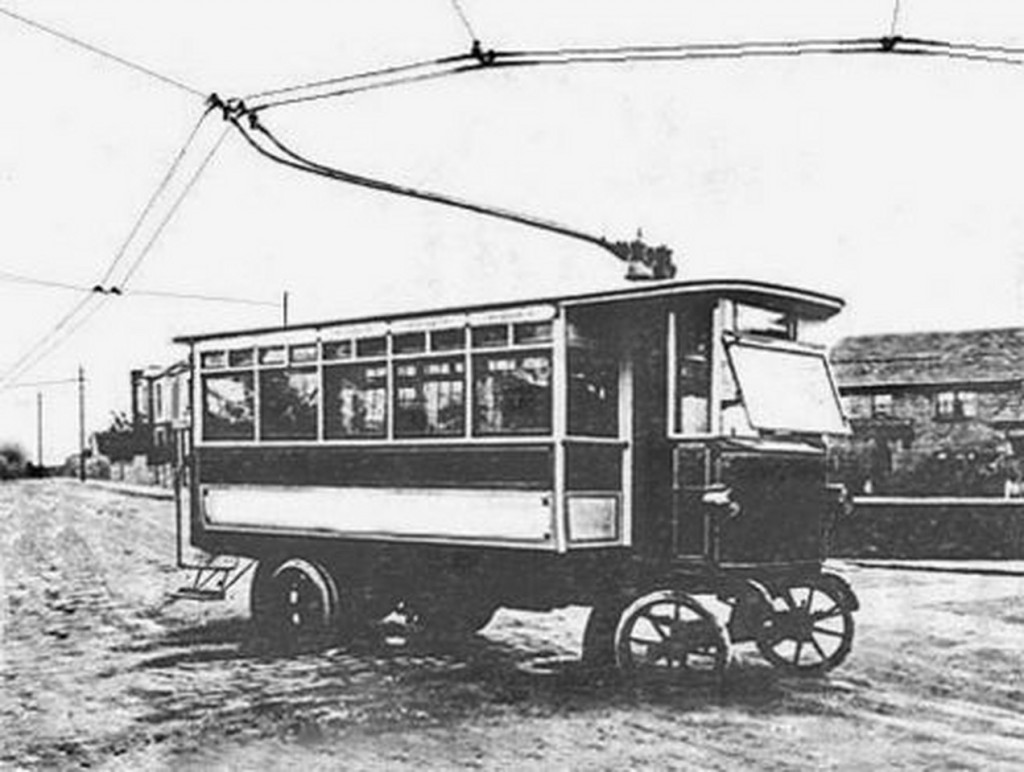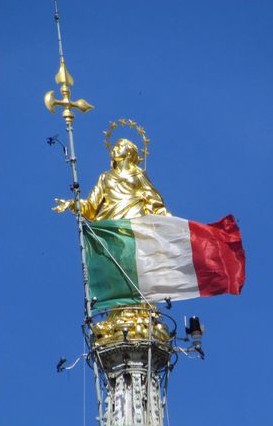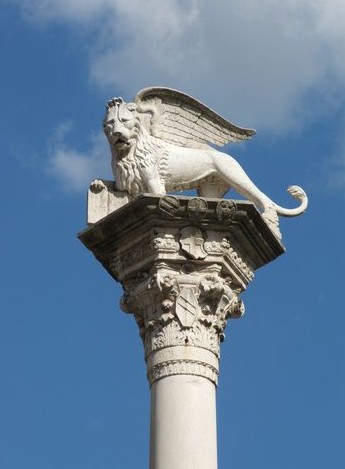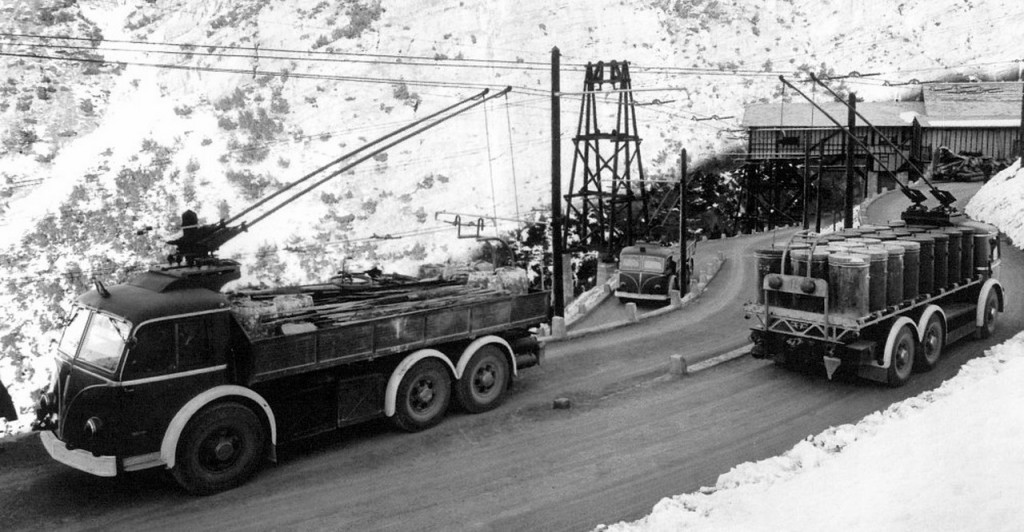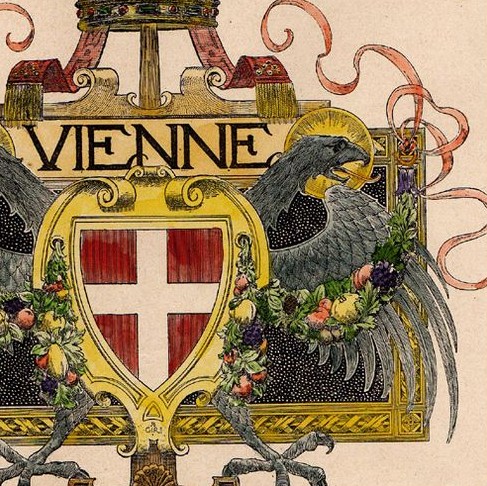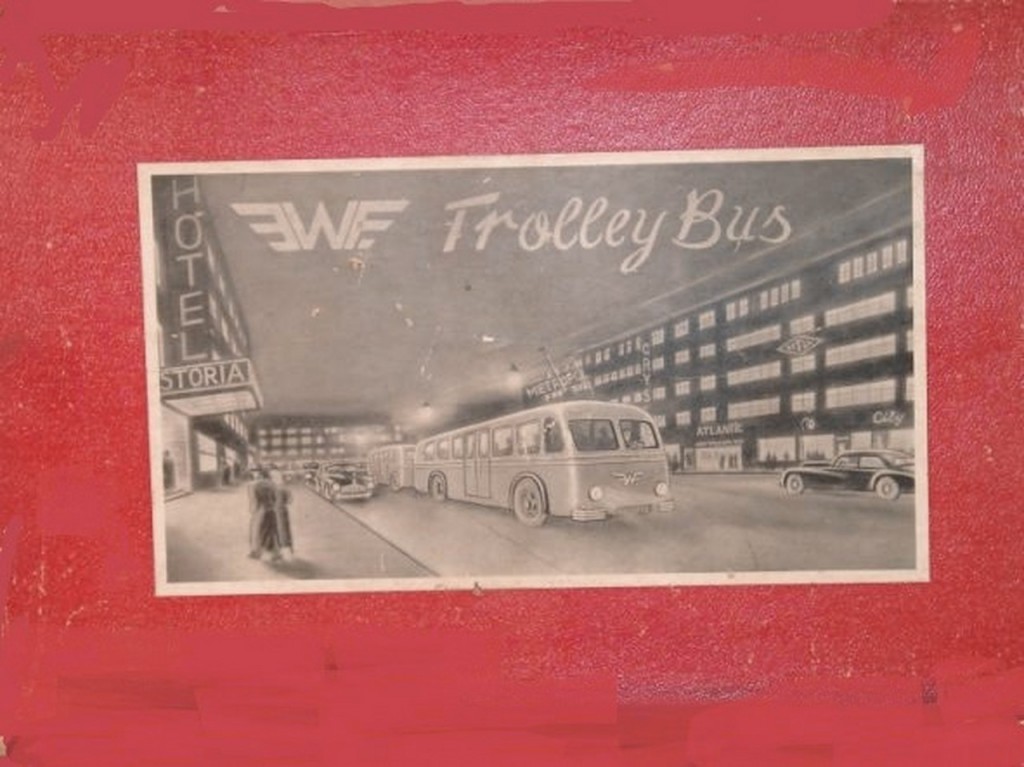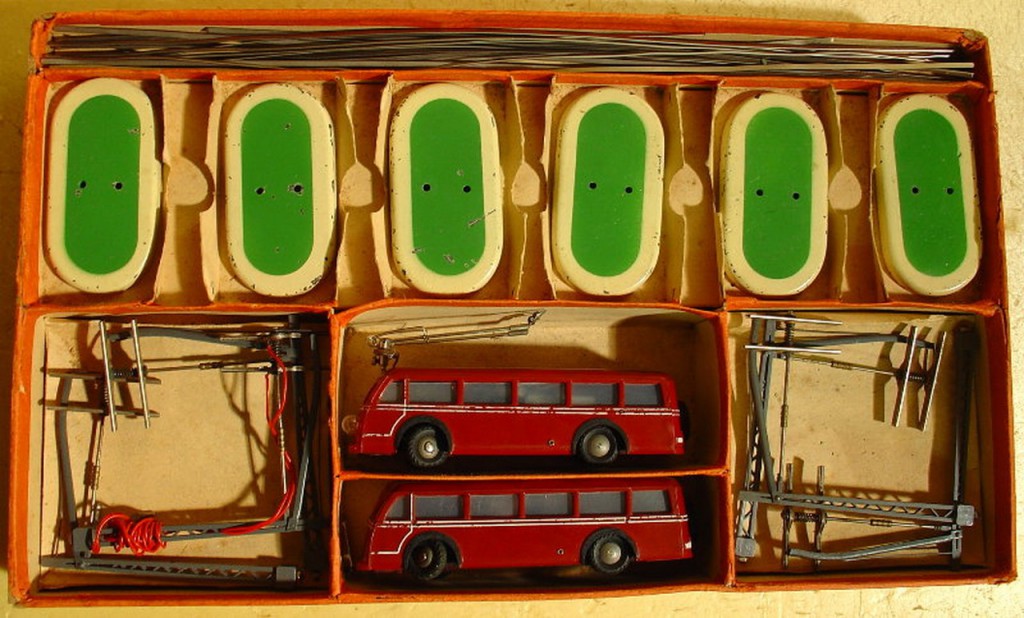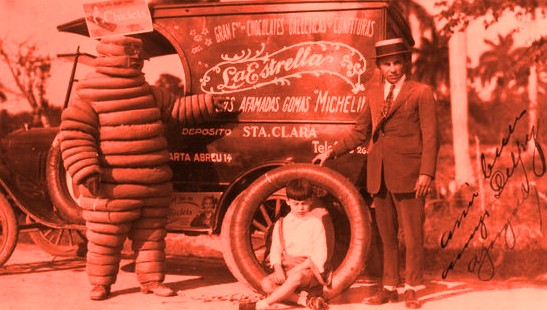The 50’s and 60 trolleybuses in HO / OO (first part)
(By P.G.)
From the beginning of the last century until the end of the 60’s many Italian cities have owned trolleybus networks.
Few of these have been preserved, but now in some cases there will be a return of these vehicles even where they had been eliminated.
From the first primitive vehicles such as this in service in Italy in Milan …
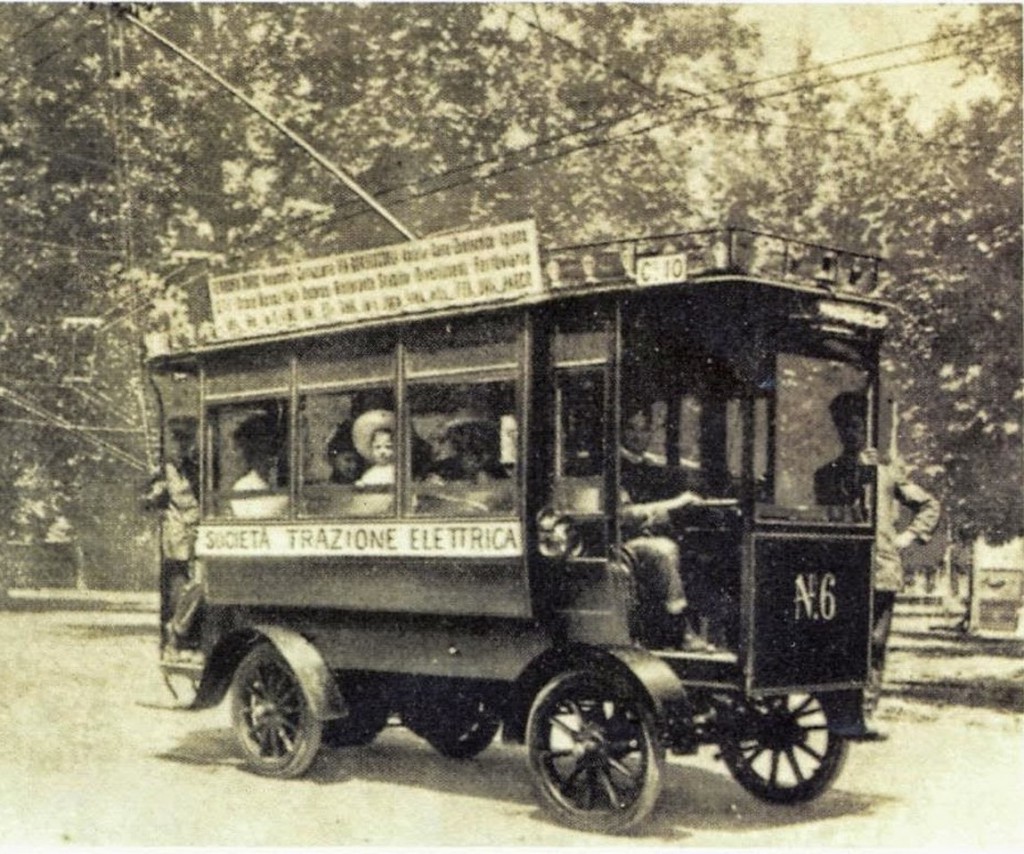
… Or … in Siena.
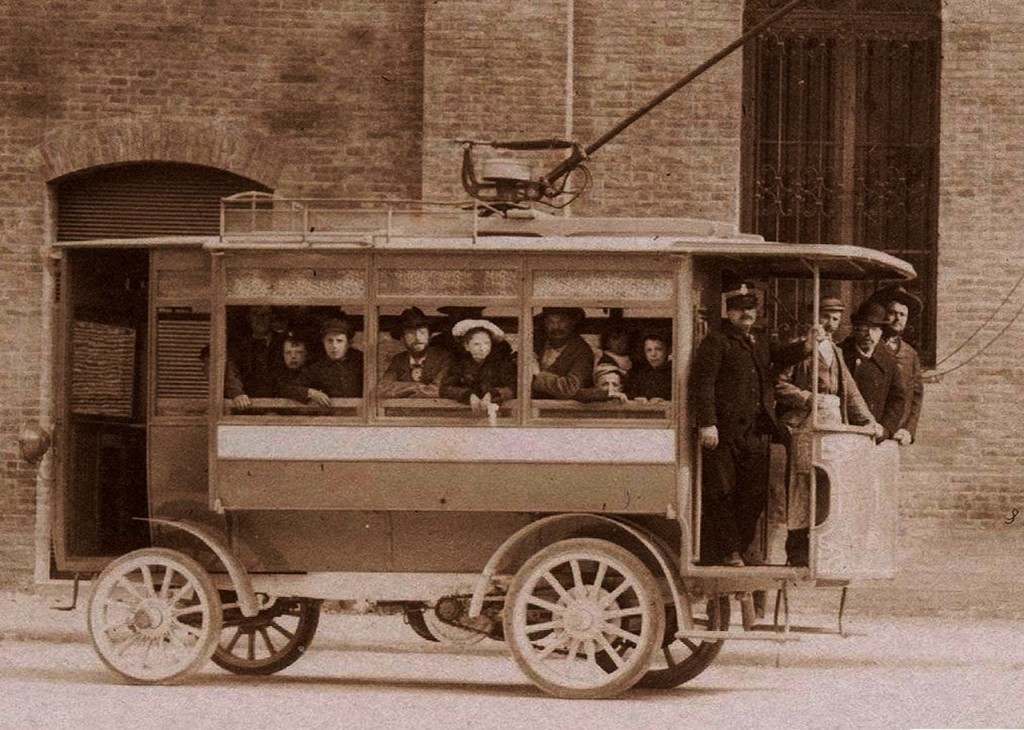
… Like these others
in use in Germany …
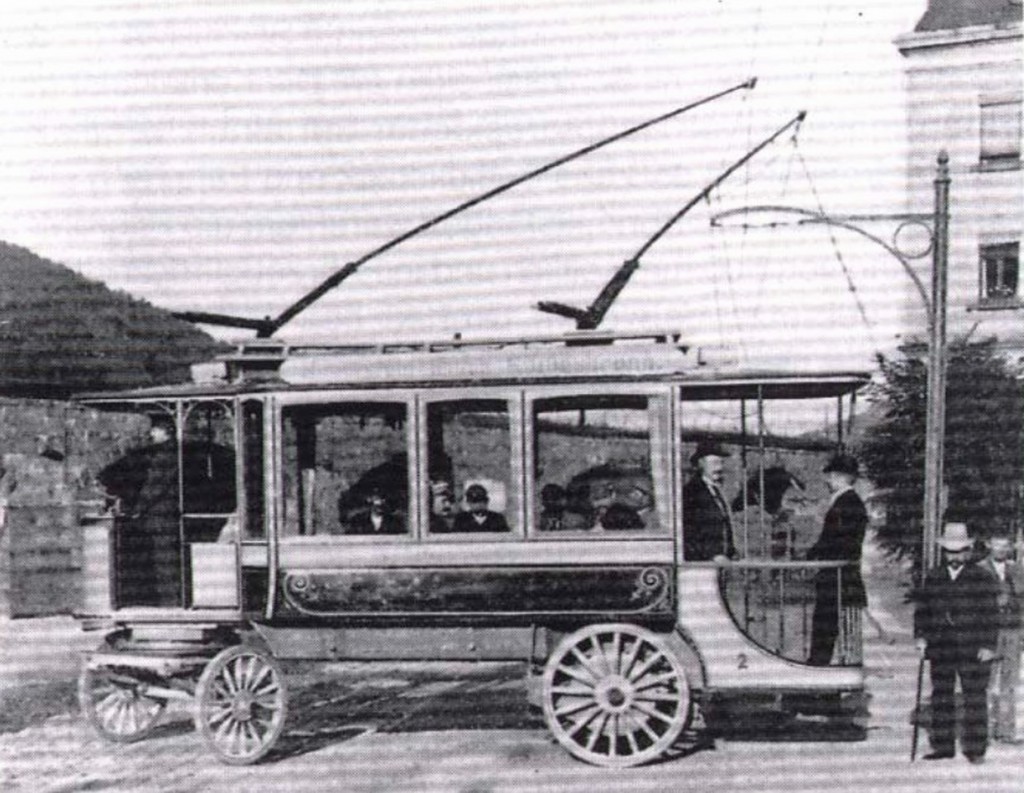
… Or
Britain …
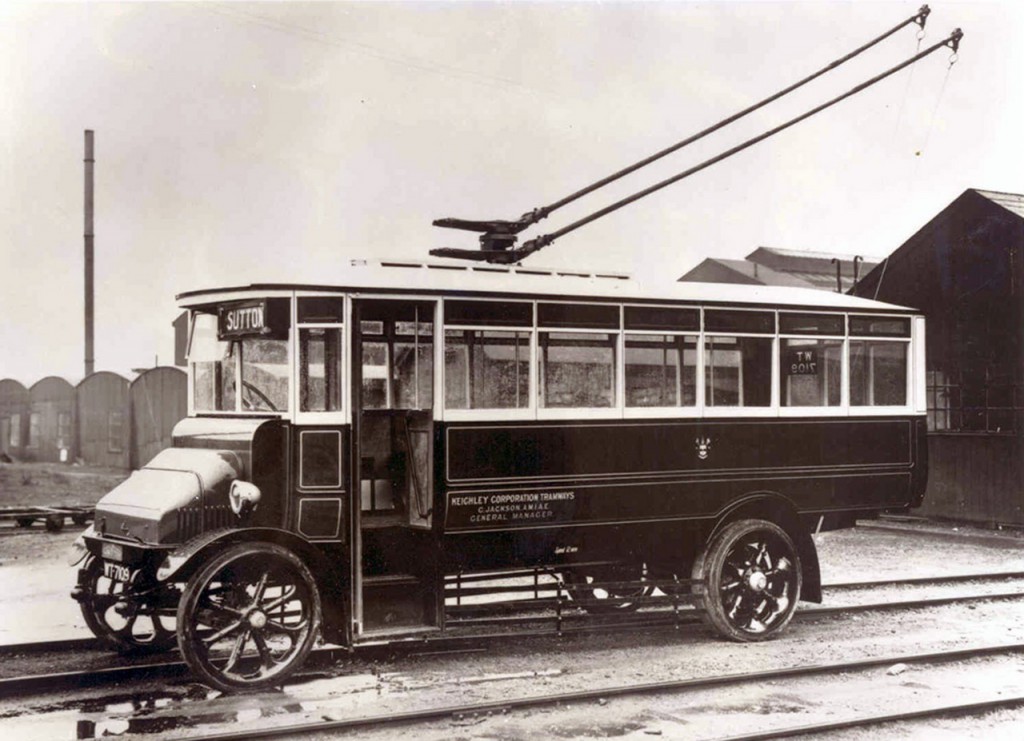
… . Trolleybus, designated the Alps as “Oberleitungbus” and known worldwide as “Trolleybus”
They have spread not only throughout Italy,
from Milan ….
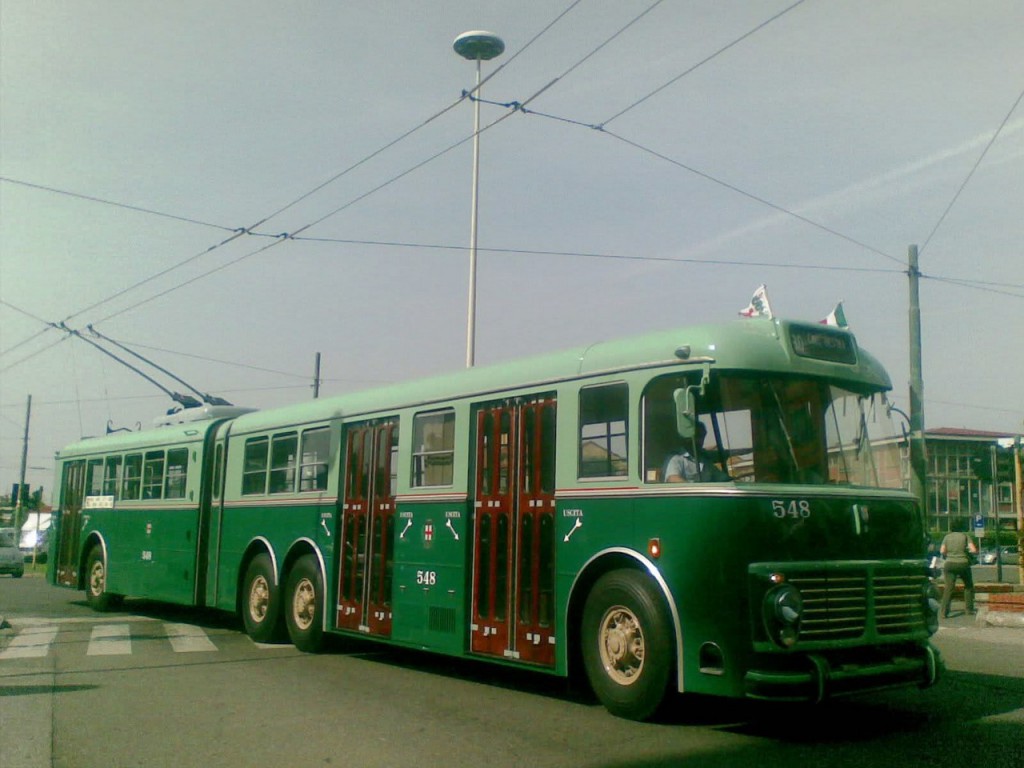
… In Rome …
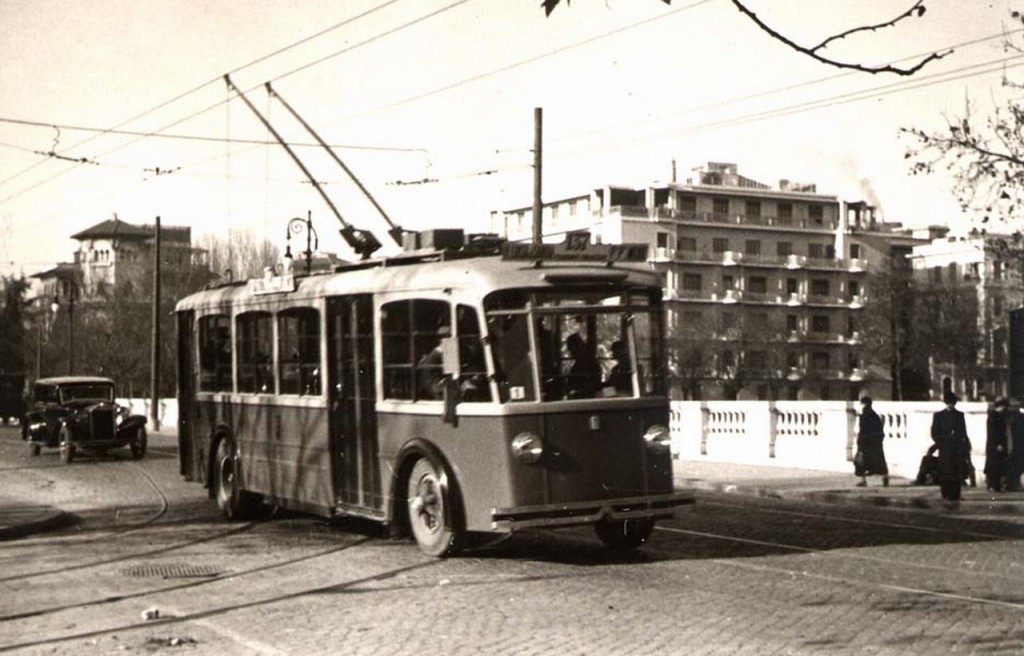
… From Turin …
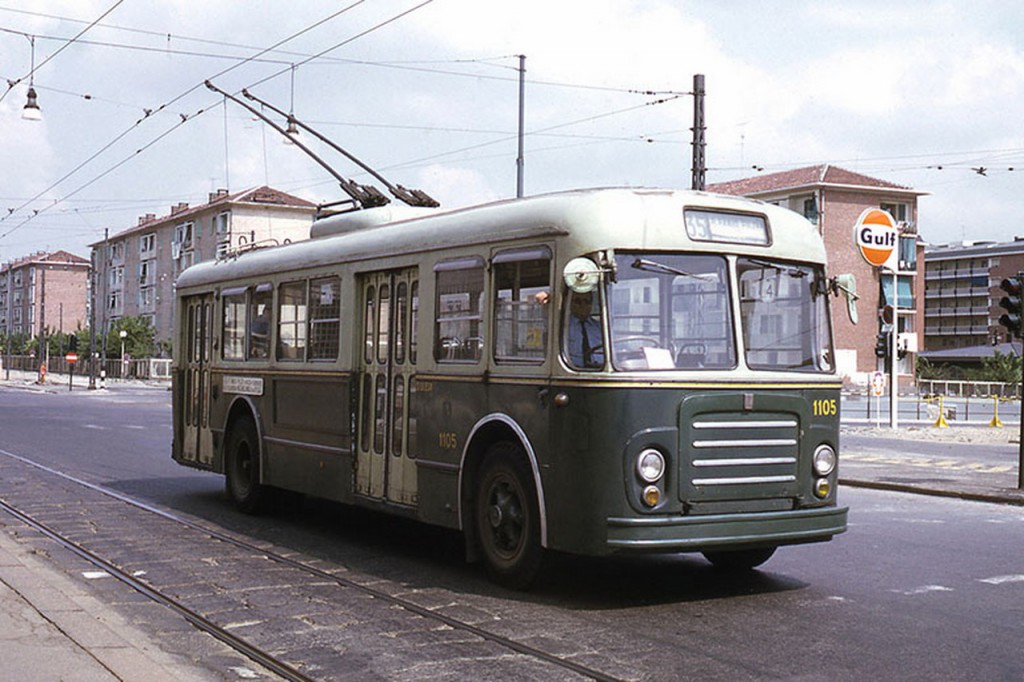
… In Como ….
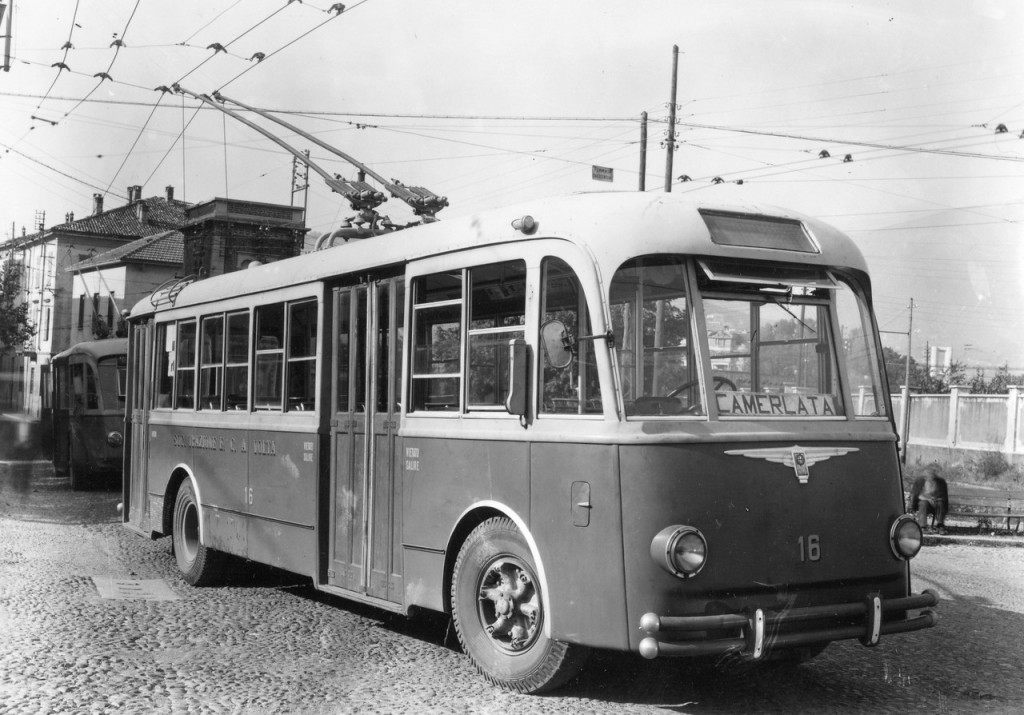
… Alexandria …
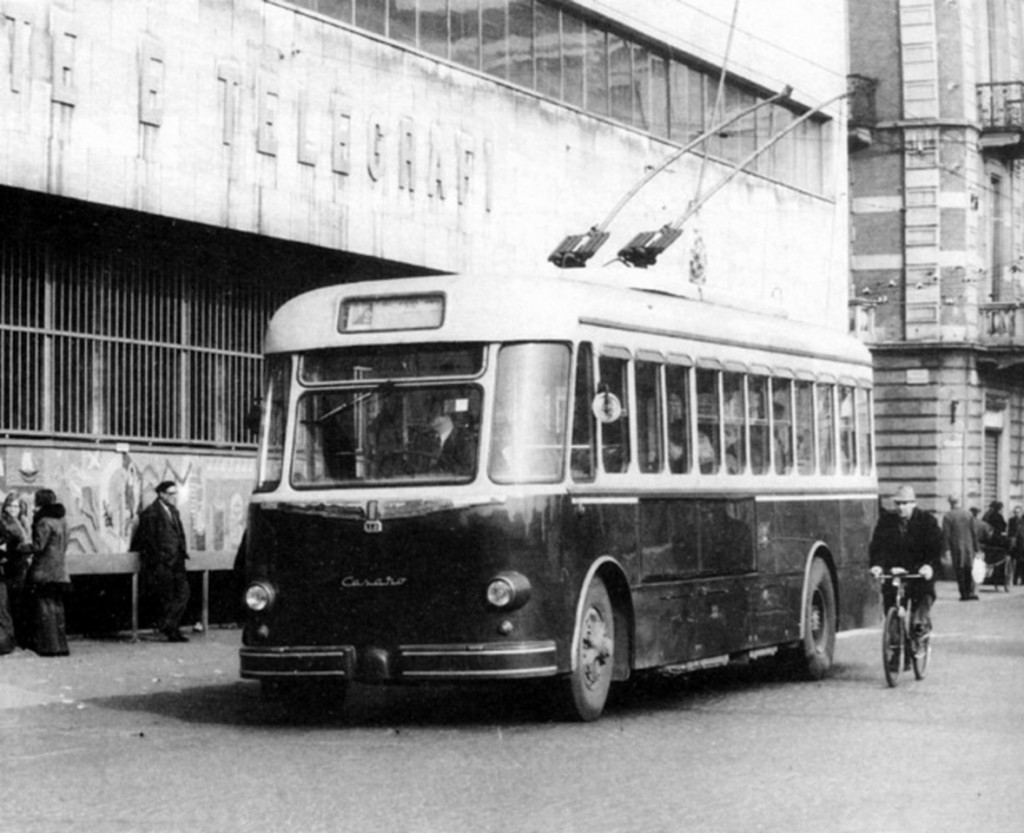
… .at … Livorno
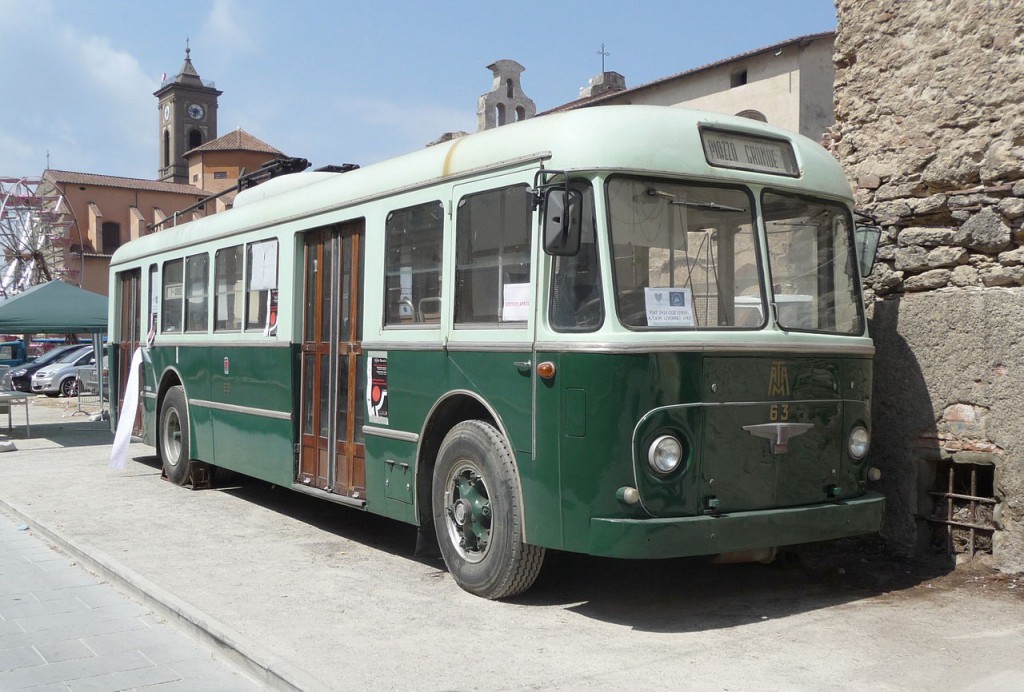
… From
Vicenza …
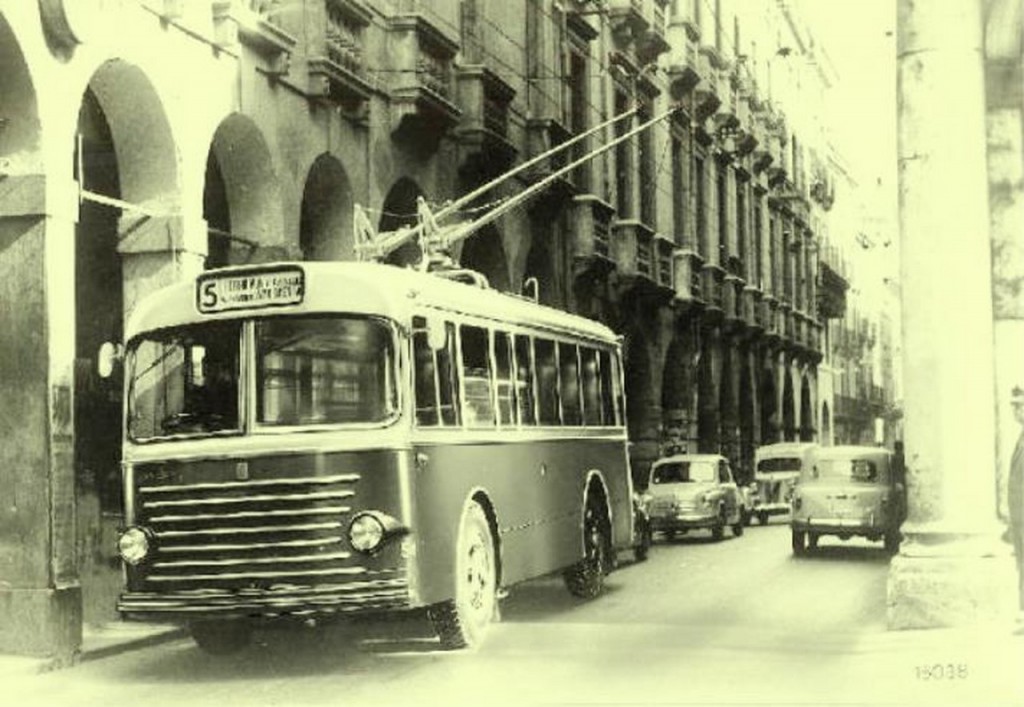
… In Naples …
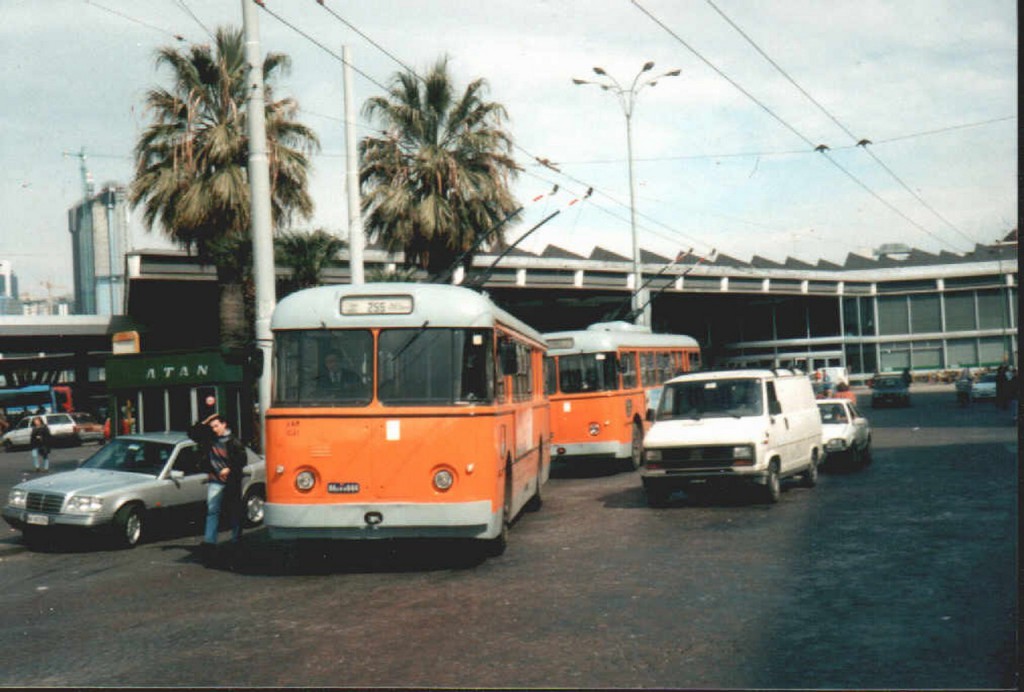
… Or in Desenzano del Garda …
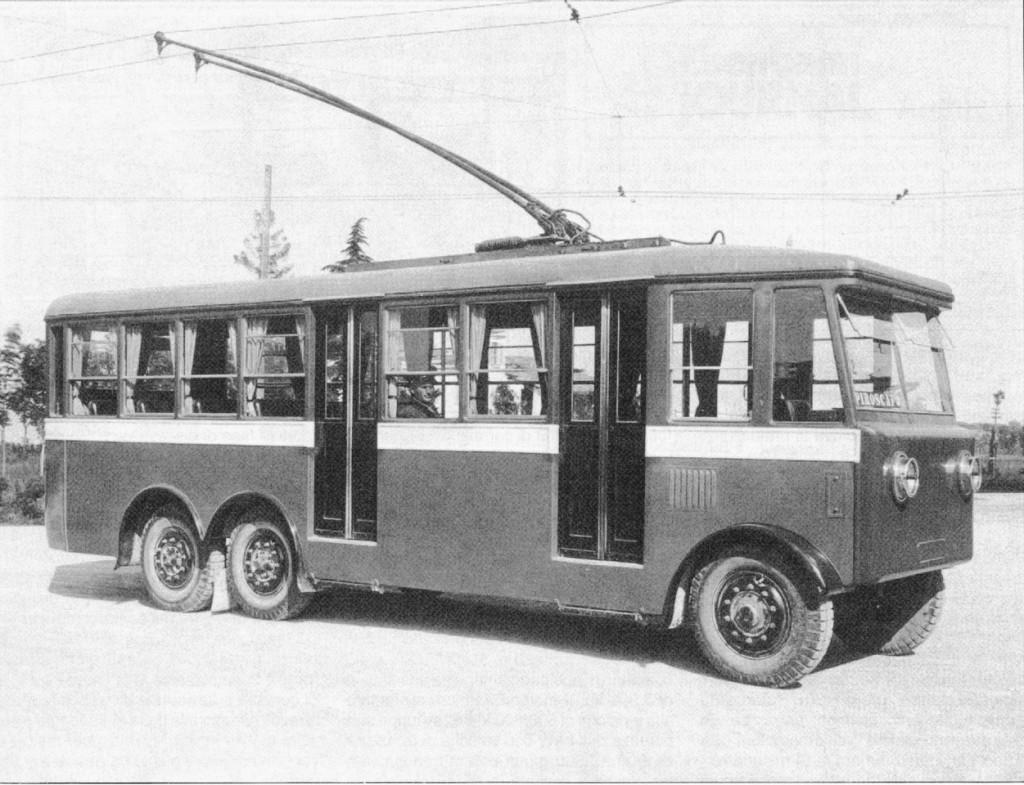
… But also in the rest of the world,

from China …
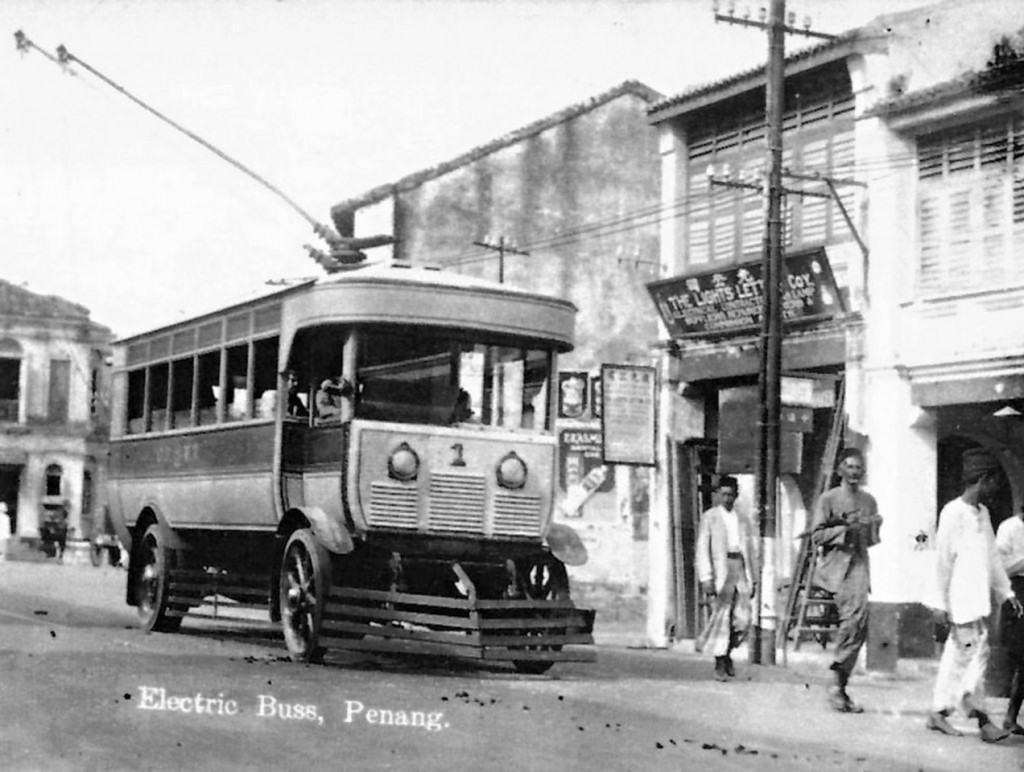
… Switzerland …
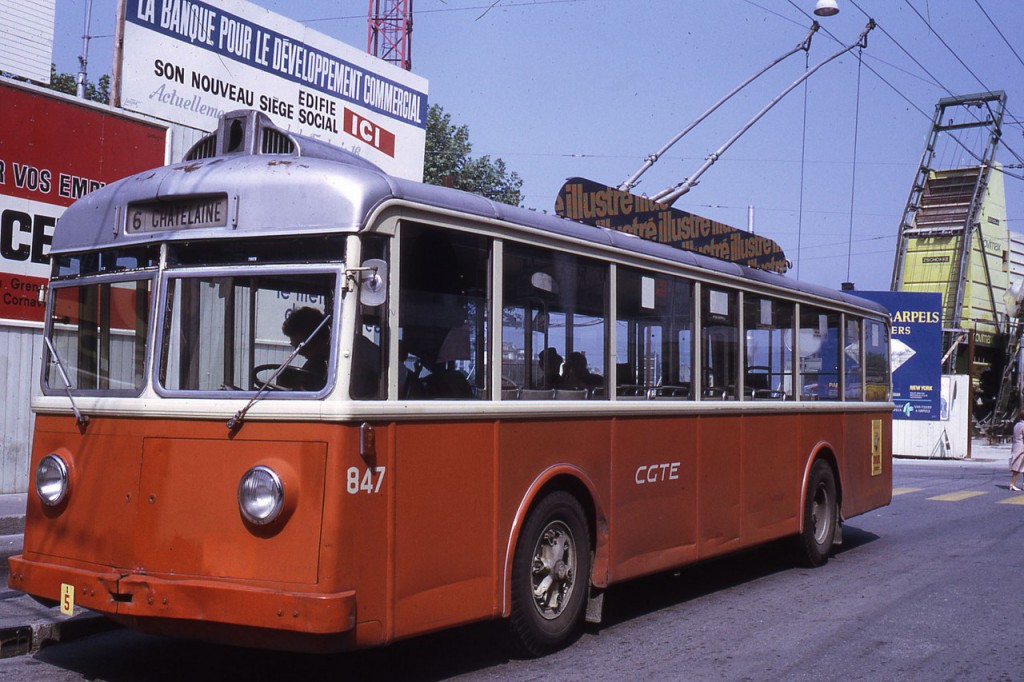
… From Austria …
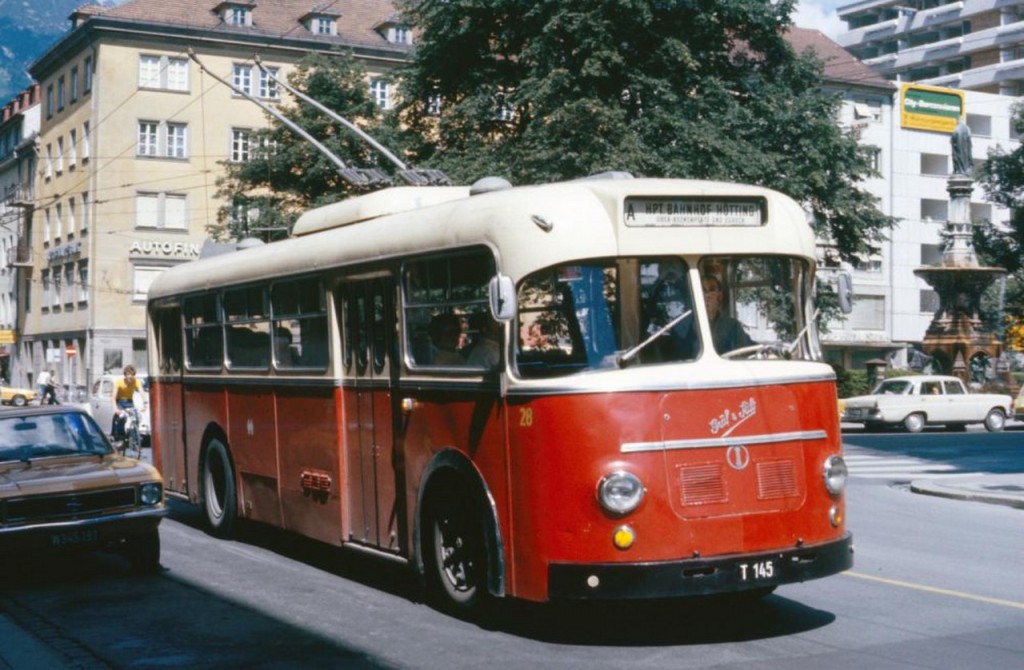
… to Ukraine …
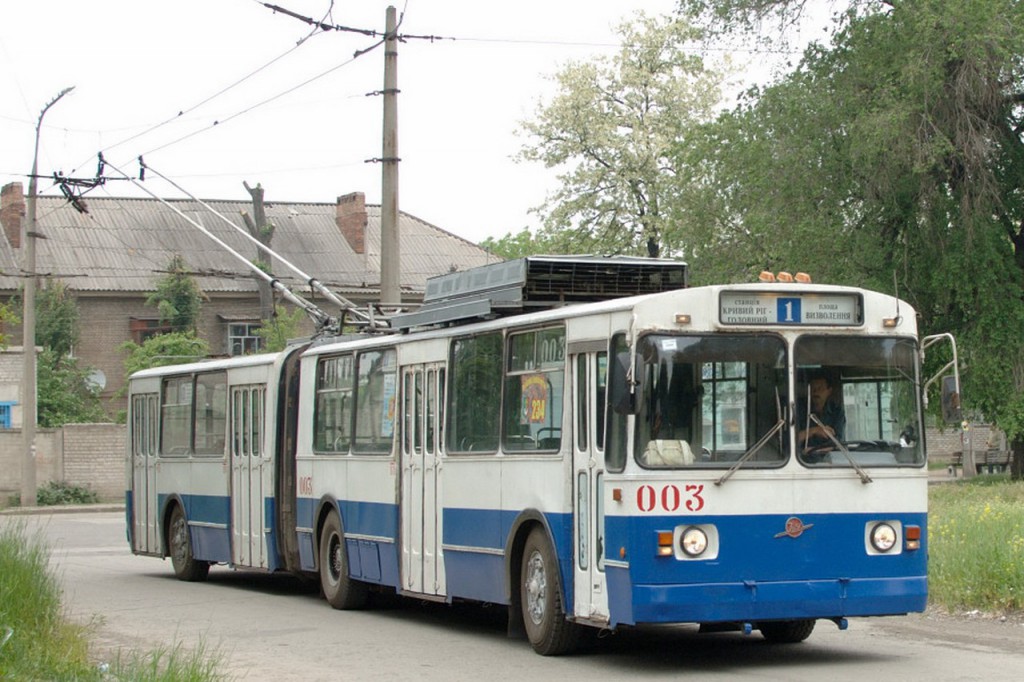
… From England …
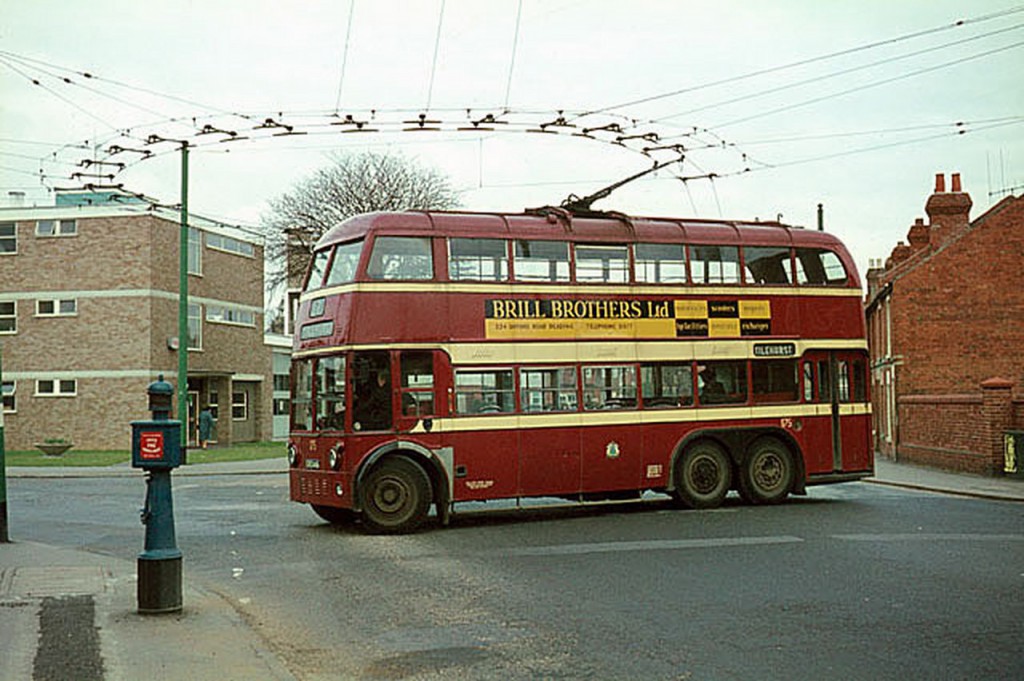
… .to Australia …
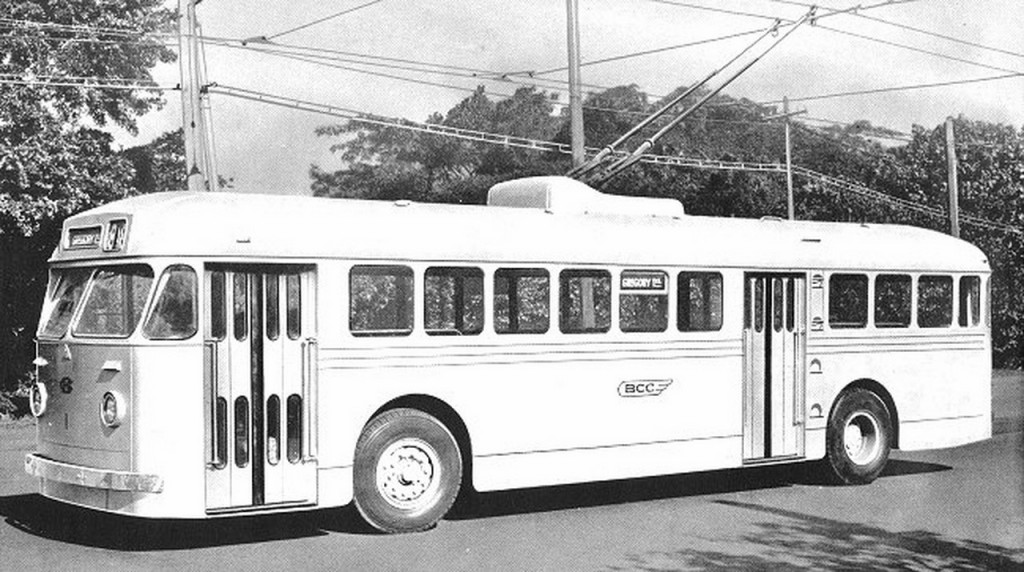
… .from Germany …
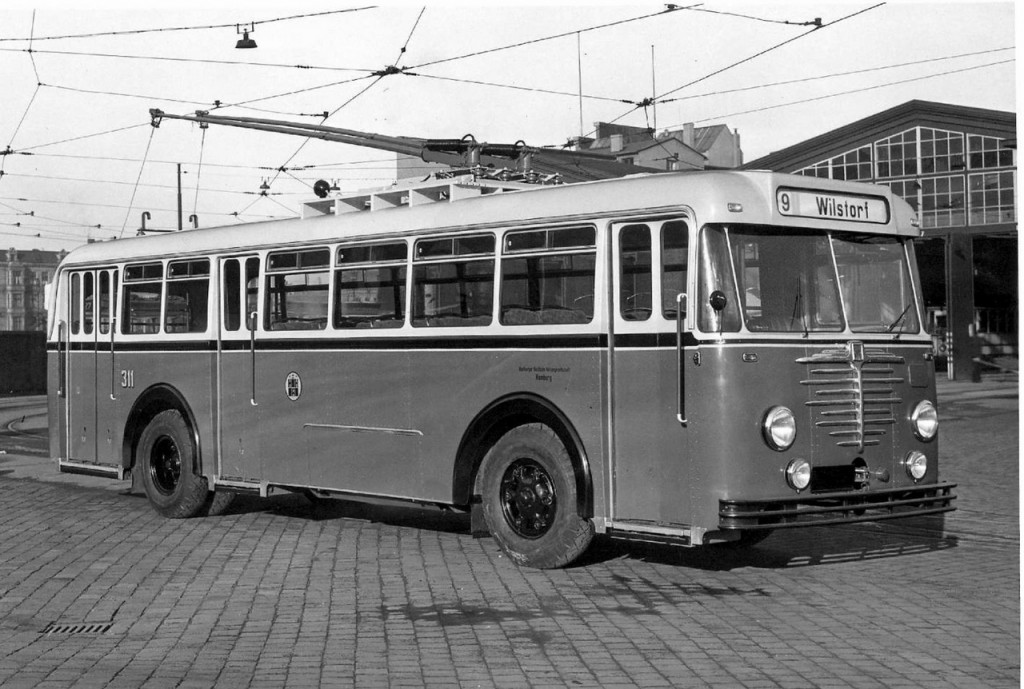
… Chile …
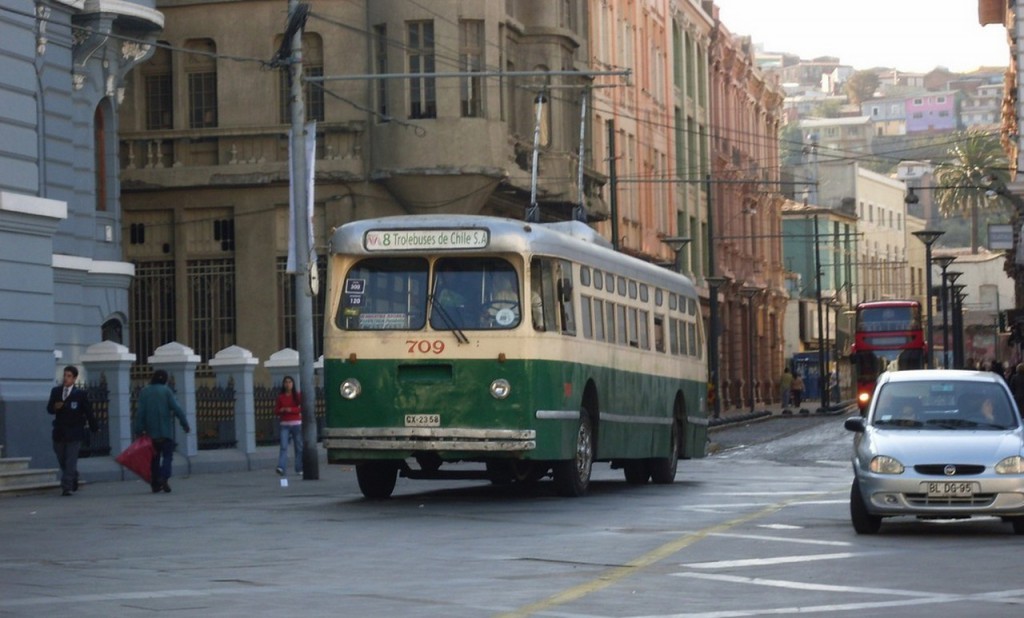
Portugal … .
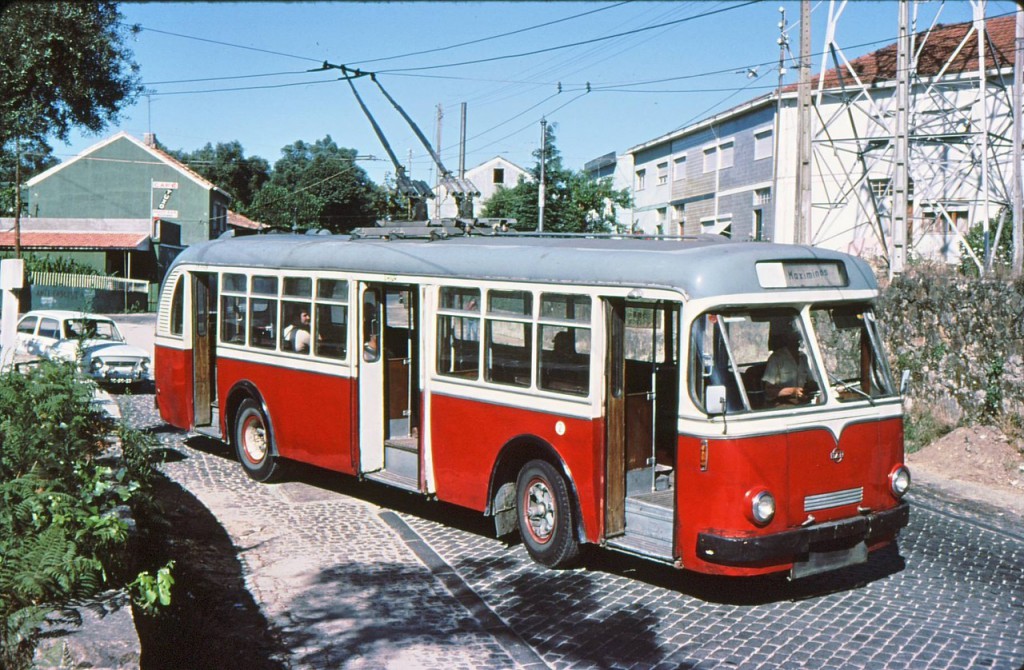
… .to Romania …
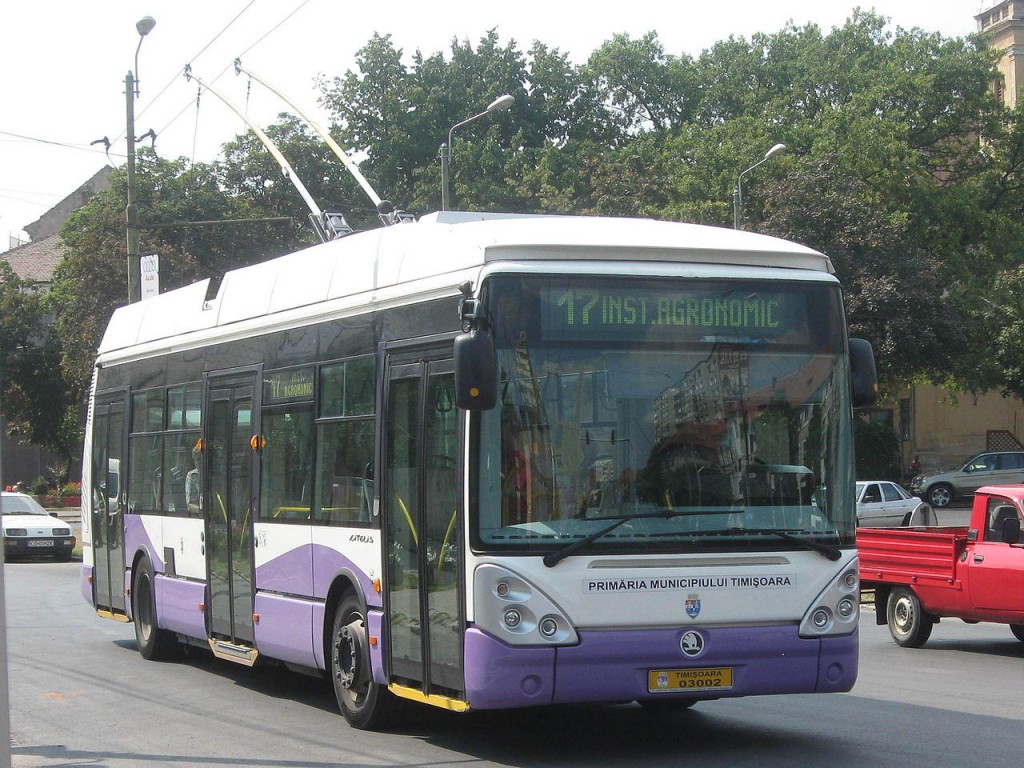
… .until Sweden …
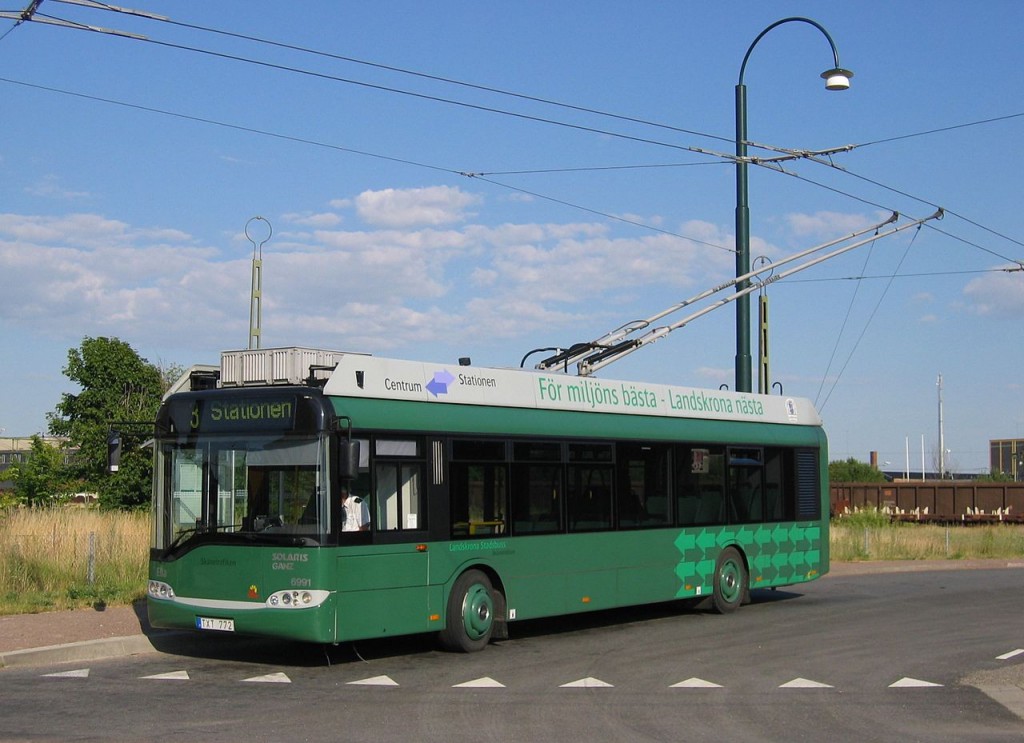
Generally used for public transport of passengers in the cities (trolleybus), more rarely for extra-urban lines (filocorriere) ….
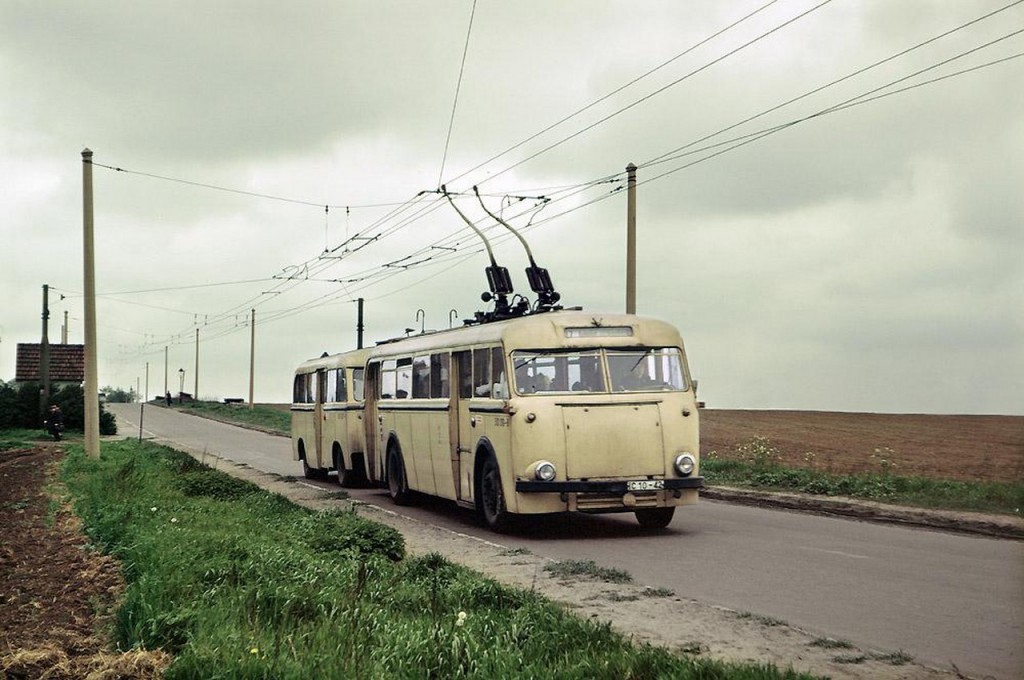
… The media have also had to freight versions (filocarri), such as, for example, those serving on the trolly the Stelvio.
In the immediate postwar trolleybuses were considered synonymous with modernity than the tram rail and probably for this reason the Austrian
engineer Karl Kreibich had the idea of play to put them on the scale model railways …
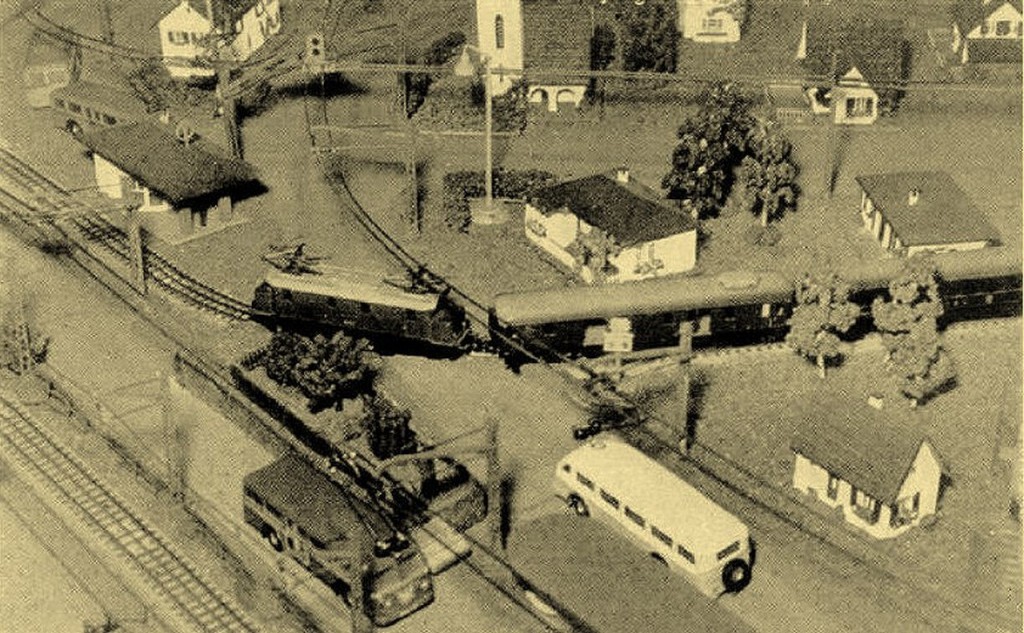
…. thereby creating the first road vehicle in scale capable of moving autonomously on the scale roads HO / OO next to the trains.
He founded in Vienna Überland companies and deposited in his country a patent on drive and on the way of driving of such vehicles …
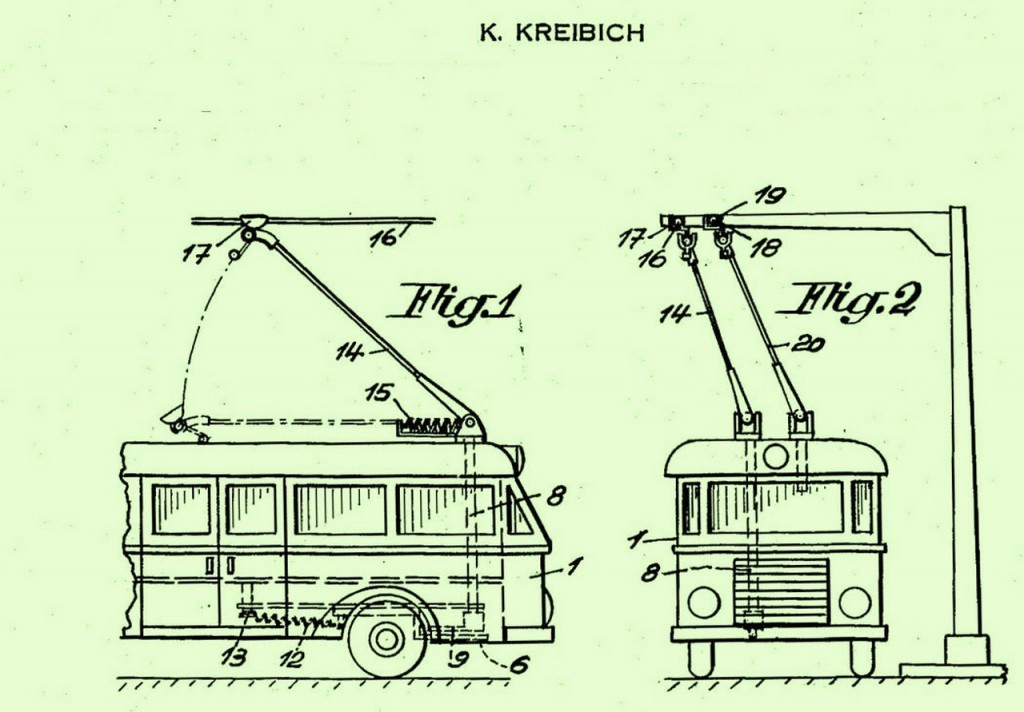
According to the ingenious invention of Karl Kreibich, one of the trolley arms operated by a pivot steering system of front axle trolleybus … ..
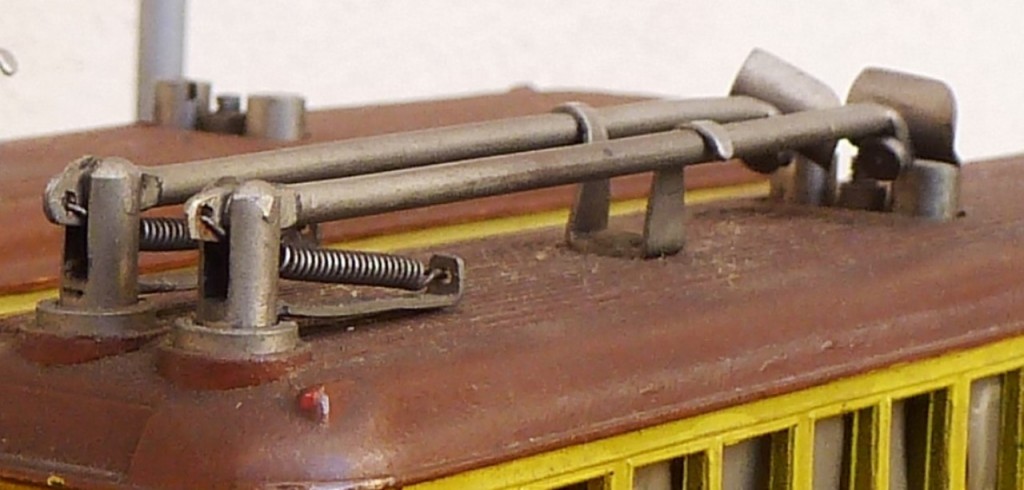
This system will then be taken in 1949 by Rivarossi.
Europe Trolleybus
A patent similar to that of Kreibich was deposed in Germany by E. W. Fischer in 1950.
The essential difference resides in the fact that the two rods of the socket are mounted together on a rotatable turret … ..
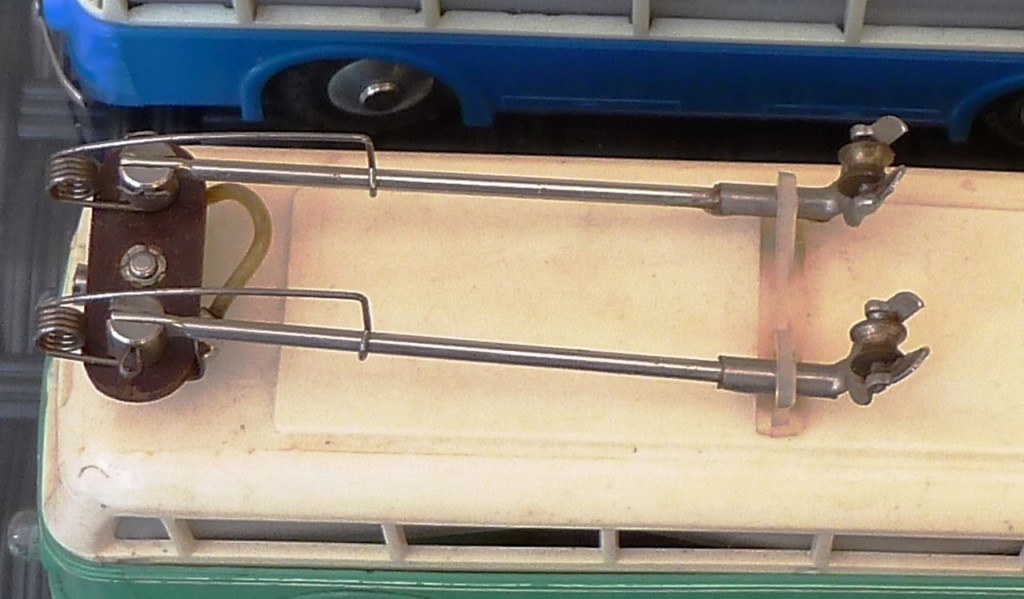
… And that, unlike the patent of Kreibich, having to forcibly keep parallel, they can only follow the variations in height of the two electrical wires of power and not the gauge variations between the wires themselves whose installation must therefore be much more accurate.
From E.W Fischer collaboration and Günther Eheim born in ’50 so the so-called “Europe Trolleybus”.
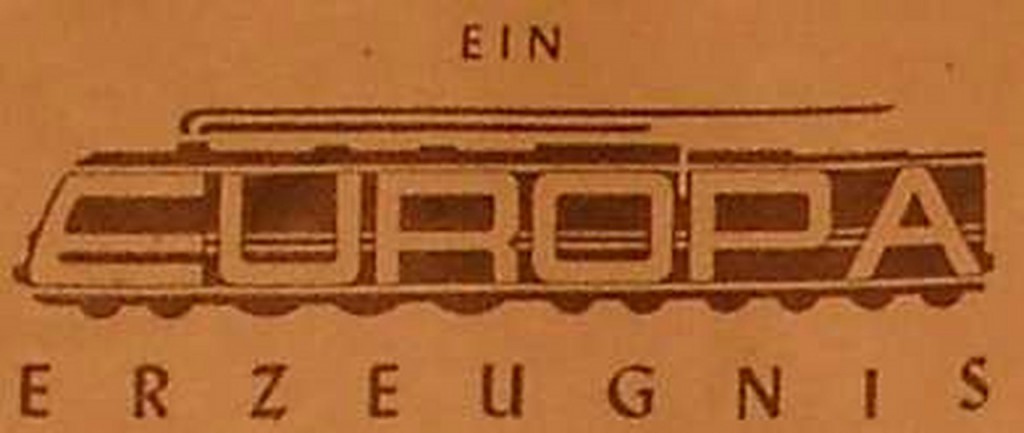
The aspect that I would call “squat and free-range”
but nice (obviously we talk of the filobus), it is made of sturdy colored bakelite in the mass in white …
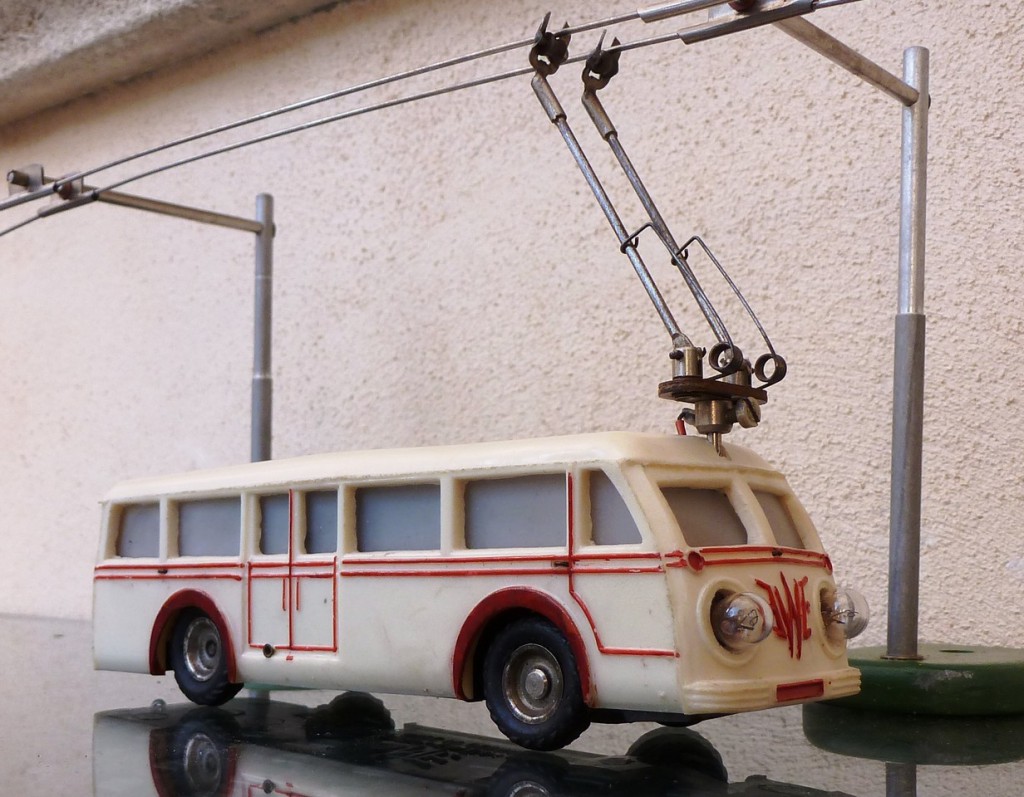
…. or dark red …
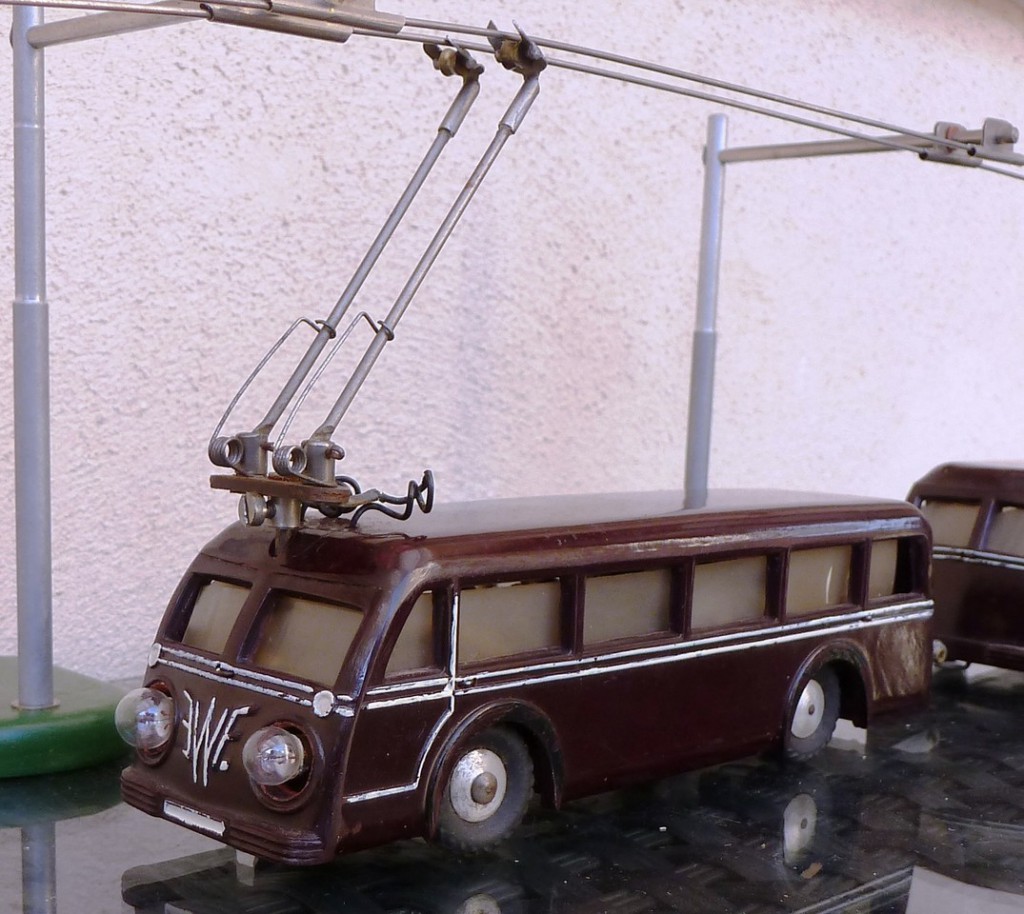
It may also be accompanied by a trailer which has the same bodywork.
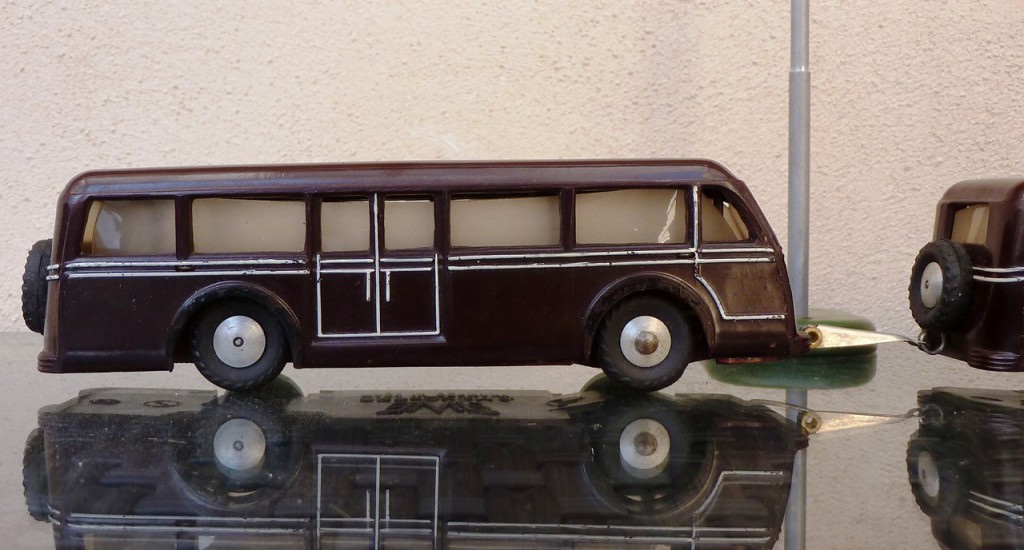
This trolley bus, from celluloid windows, front door the initials of the patent depository.
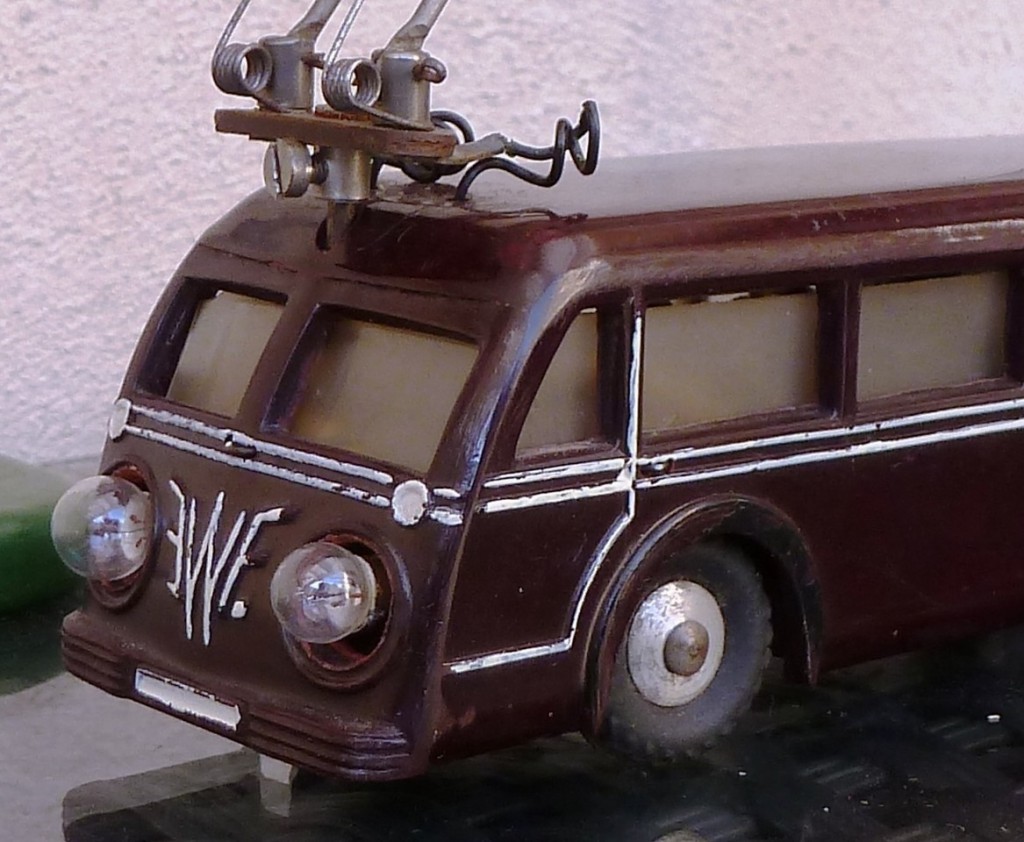
Are scale models rather abundant, especially for the width of which, however, it contributes to good running stability.

The big front lights, reminiscent of Maerklin locomotives of the era …
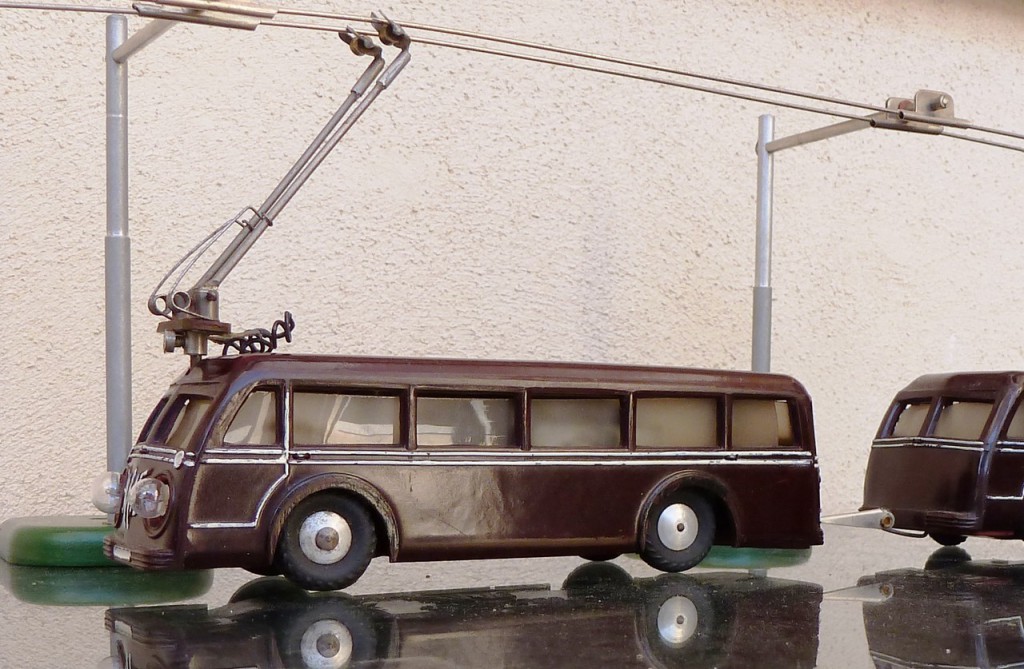
… give these trolleybuses an old-fashioned charm and detail.
The operation is DC or AC from 7 to 18 volts.
” Europe Trolleybus “was sold individually
or in packs with planes poles and wires ….
… And with the instructions behind the cover.
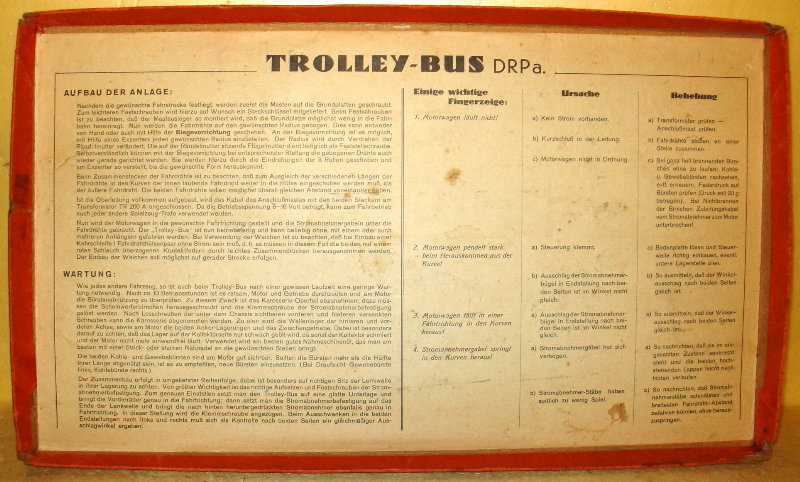
Note the presence of this vehicle, as well as its trailer, the rear tires, which I have never seen the real trolleybus for which, given their limited radius action, an any drilling could be better protected with the arrival
of a rescue vehicle.
Of the “Trolleybus Europe” already in itself is quite rare today even existed a very rare version bakelite bluish which now reaches stratospheric prices.
Unfortunately the production costs are too high and the company fails in ’53.
(@ November 16, 2016)
